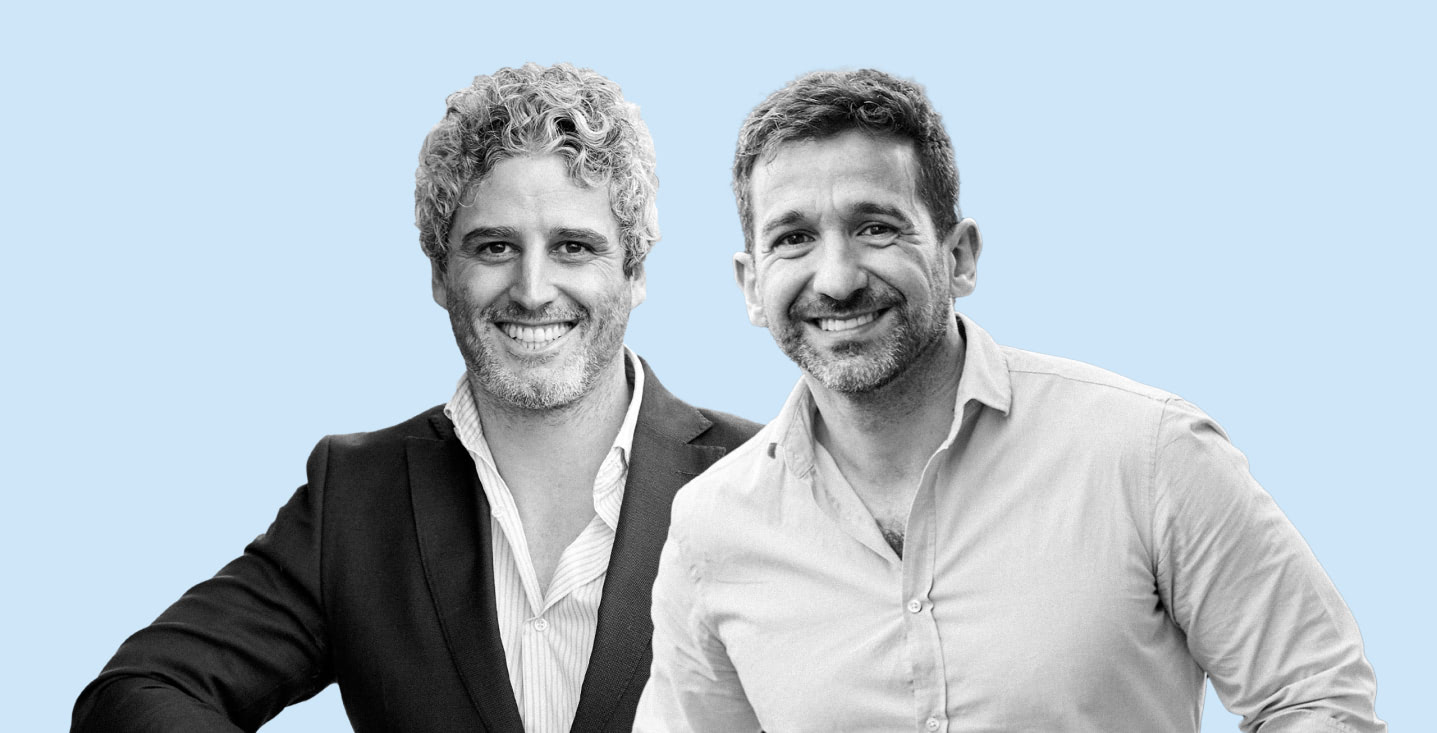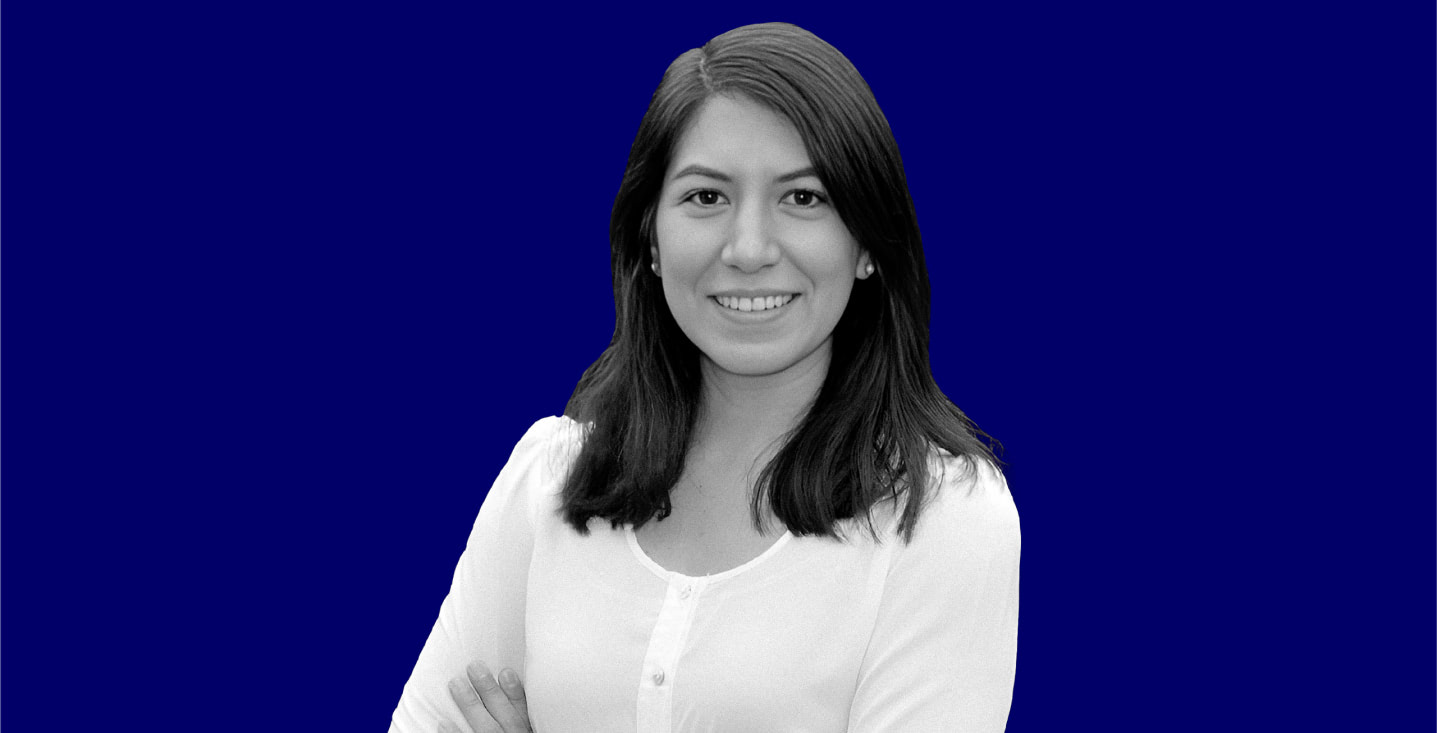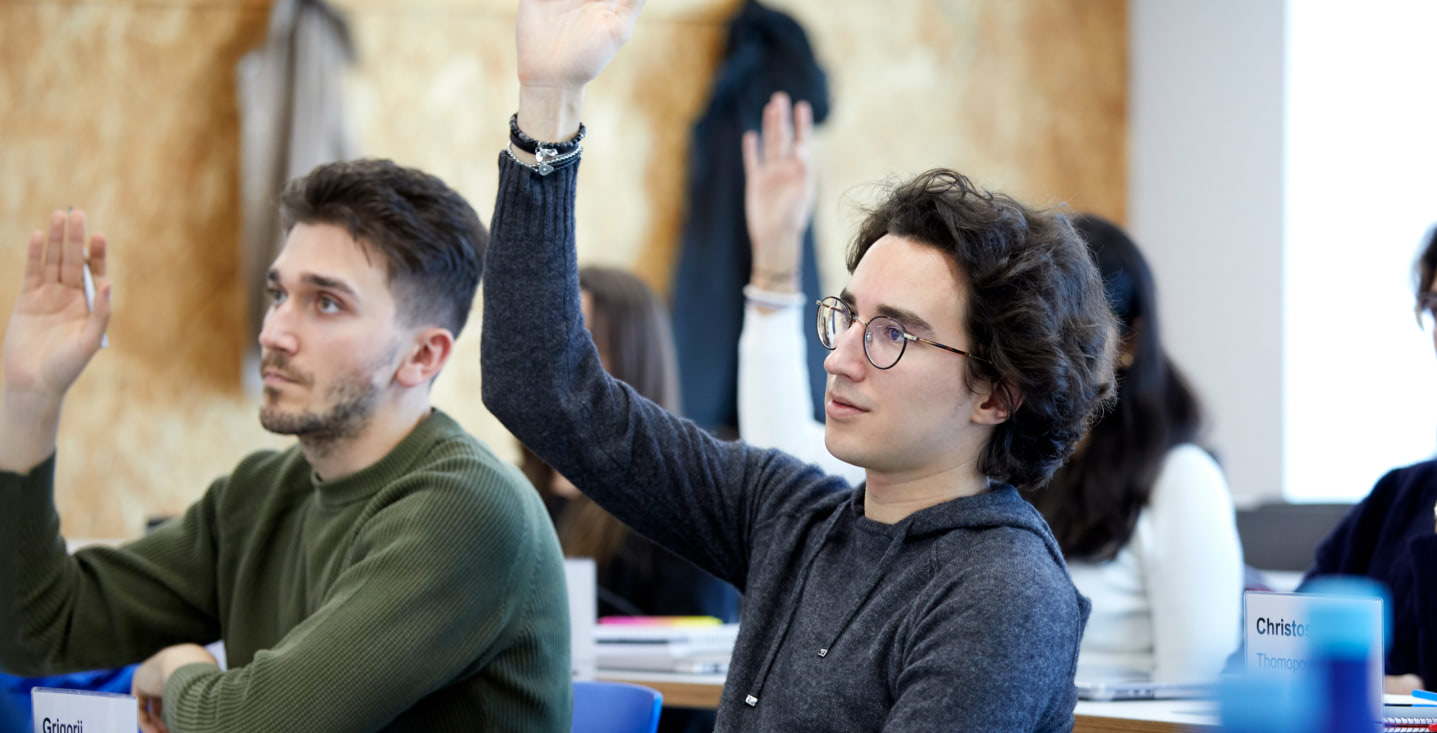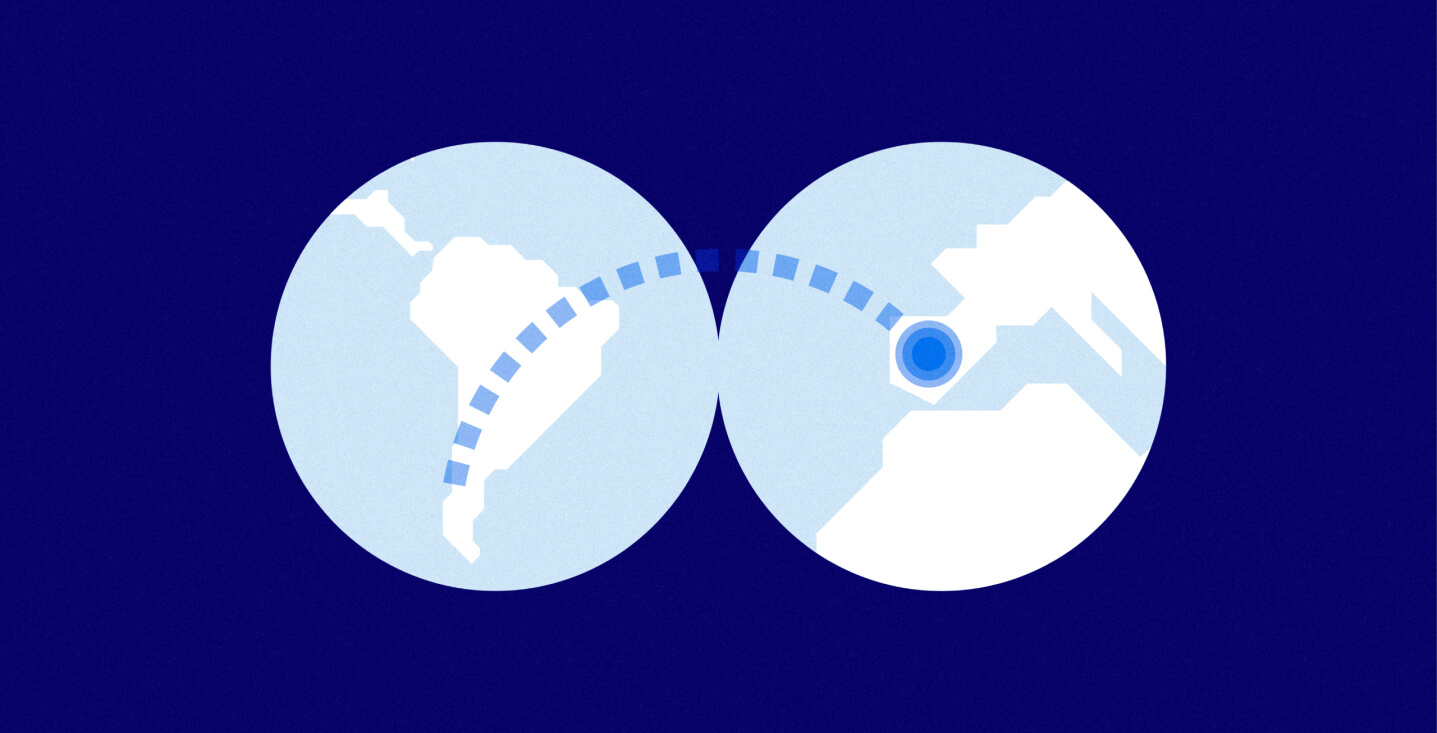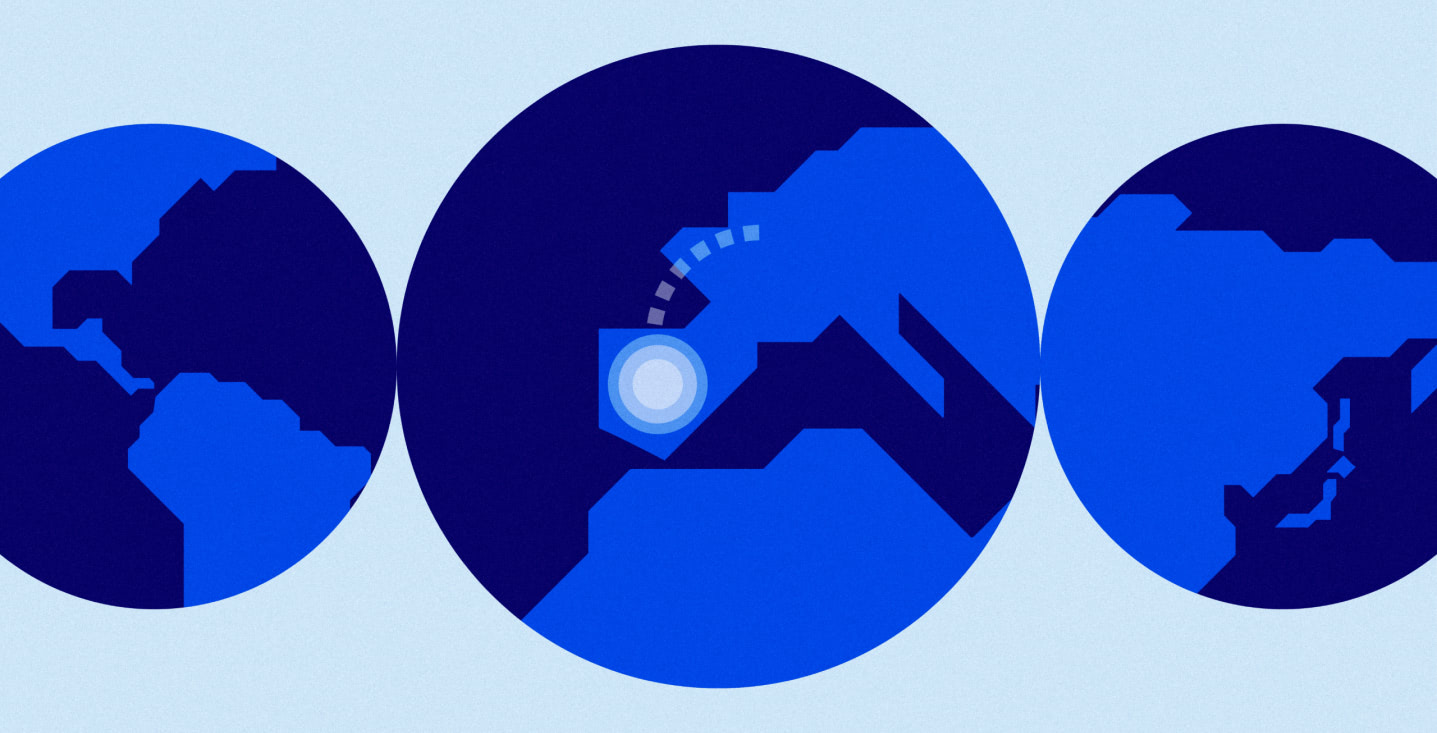20/10/2023
As she takes up her new role of academic director, Bárbara Huerta hopes to breathe new life into the program, armed with unique insights from an exciting career.
Bárbara Huerta has always understood the value of hard work. Thanks to her parents, sports and ballet, she was firmly rooted in a culture of effort and continuous improvement from a young age. These values have since become the cornerstone of her academic and professional progress.
Bárbara recently joined the ranks of IE Business School’s globally renowned faculty. As the new academic director for the Master in Finance, she’s eager to share her appreciation for rigor and excellence with the next generation of finance professionals.
Uniquely qualified by experience
Like every good story, Bárbara Huerta’s path is marked by many memorable moments, exciting adventures and unique experiences. It all started in Madrid, where she graduated with her bachelor’s degree in economics from CEU San Pablo University and also held the best academic record of the university. She then started her fellowship at the Bank of America as part of its macro research division. However, her first true foray into the corporate world was with Arthur Andersen, then one of the “Big Five” accounting firms and among the largest multinational corporations in the world.
“In the five years I was at the firm, I consolidated my practical learning of finance, financial accounting and their relationship with business operations,” she says. But what Bárbara didn’t know—yet—was that her stint with the company would leave her with more than hands-on skills. Instead, it taught her important lessons about the relevance of internal controls, which changed the course of her career.
“I was barely a second-year junior associate when the Enron scandal was uncovered in the US,” she explains. What followed was months of shock, turmoil and outright disbelief. “In just half a year, I saw the company, for which I had applied with such enthusiasm, simply disappear.” However, Bárbara’s tenacious spirit gave her the push she needed to overcome this challenging time, and she pivoted into the world of technology and telecommunications. She completed her training at Deloitte before joining Telefónica in 2003.
The road to IE Business School
By 2005, Bárbara was ready for something different. “I needed much more specific and global training in both corporate finance and capital markets,” she explains. So, she enrolled in the then-named Executive Master in Finance at IE Business School to refine her skill set according to her goals—and the move paid off. In the time since the first promotion of the program, the Master in Finance has consistently ranked in the top positions of worldwide recognitions for master’s programs. As of 2023, the Master in Finance is ranked 7th worldwide by the Financial Times.
Bárbara calls the program a turning point in her professional journey, as it directly contributed to her promotion to manager of the financial structure division at Telefónica. “My day-to-day was a practical application of everything I had learned in the Executive Master in Finance classrooms in relation to corporate finance, valuation and financial modeling.” Six years later, Bárbara has continued to rise through the ranks: she’s now the finance and process internal audit director.
Soon, however, the student was called to be the teacher. “My interest in learning led me to the pleasure of teaching, which fulfills me every day,” she says. Bárbara first discovered her desire to transmit knowledge at Deloitte, but she’s been actively teaching various courses at IE Business School for at least 15 years and is also the author of “Promotores de la Crisis” (“Promoters of the Crisis”) and co-author of “El final de la Crisis” (“The End of the Crisis”) alongside Leopoldo Torralba and Ignacio de la Torre.
Why the Master in Finance?
As the incoming academic director of the Master in Finance, Bárbara sees a future full of new possibilities. She hopes her holistic vision, born from years of experience, will bring value to every student and enrich their perspective of the industry. One of Bárbara’s main goals is to encourage women to follow a career in finance, a field that has typically had more of a male presence. However, she’s especially focused on creative accounting and advanced valuation, a whole field of specialization that arose from the growing need to interpret financial statements. “Understanding accounting and financial statements is no longer just desirable, but fundamental and indispensable for anybody who works in the financial industry,” says Bárbara.
Situations like the Enron case in the US, Satyam in India or Carillion in the UK, are proof of this fact. That’s one reason why her goal is to expose students to the most common games in accounting practice, providing an ethical basis and defense mechanism that allow them to identify and neutralize these accounting minefields. As she explains, “It is key to consider the practical financial and human consequences of financial irregularities and the relevance of sustainable growth for economy and society.”
Studying a Master of Finance is essential for anyone who wants to develop a career in this field.
According to Bárbara, several other factors make studying the Master in Finance worthwhile:
- It is consistently top-ranked, with the latest rankings from the Financial Times naming it the seventh-best Master in Finance in the world.
- The program offers four specialization tracks that offer students a distinct competitive edge: Investment Banking & Private Equity, Global Markets & Asset Management, Real Estate Finance & Alternative Investments, and Financial Analytics & Digital Finance. Students can also expand their training with electives that allow them to explore different fields of finance.
- The program has a blended focus on financial and leadership skills. The blend of business, accounting and finance in a fully integrated iterative model is something unique to the Master in Finance and only offered at leading investment banking and private equity firms.
- Program graduates report that the program’s practical, hands-on approach and the specialized skills they acquired have resulted in bigger, better career opportunities.
- IE Business School has a long history as an established leader in the industry. Over the years, the Master in Finance has evolved to keep up with the market.
- The program’s curriculum is continuously reviewed and updated every year, keeping pace with the evolving realities of the financial markets and the shifting demands of the labor market.
- Courses are expertly designed with employability in mind, with our faculty of industry leaders shaping each class through their years of firsthand experience and insights.
- Students benefit from a robust ecosystem of resources, including the IE Trading Room, which features terminals linked to Bloomberg and FactSet.
- The Master in Finance is undeniably global, offering exchange opportunities abroad with other leading business schools in Europe or across the pond, as well as optional international trips to major financial hubs like New York and London.
Continuing the legacy of transformation
Bárbara Huerta has already scaled insurmountable challenges, turning adversity into triumph in the process of building a rewarding career. She hopes her inspirational journey not only shows there’s more than one road to success but also encourages more women to explore finance and other related disciplines. As she takes the helm of the Master in Finance, students can look forward to a dynamic, impactful experience.


